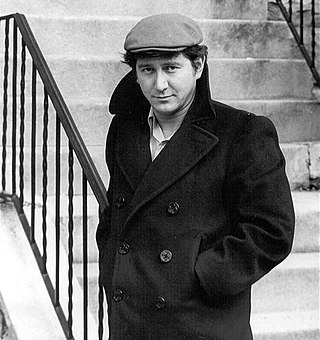
Philip David Ochs was an American songwriter and protest singer. Ochs was known for his sharp wit, sardonic humor, political activism, often alliterative lyrics, and distinctive voice. He wrote hundreds of songs from the 1960s to early 1970s and released eight albums.

Joan Chandos Baez is an American singer, songwriter, musician, and activist. Her contemporary folk music often includes songs of protest and social justice. Baez has performed publicly for over 60 years, releasing more than 30 albums.
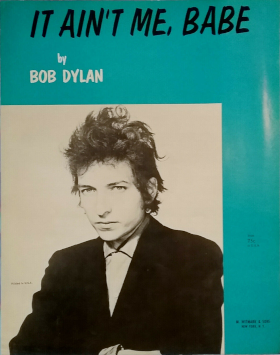
"It Ain't Me Babe" is a song by Bob Dylan that originally appeared on his fourth album Another Side of Bob Dylan, which was released in 1964 by Columbia Records. According to music critic Oliver Trager, this song, along with others on the album, marked a departure for Dylan as he began to explore the possibilities of language and deeper levels of the human experience. Within a year of its release, the song was picked up as a single by folk rock act the Turtles and country artist Johnny Cash. Jan & Dean also covered the track on their Folk 'n Roll LP in 1965.

Renaldo and Clara is a 1978 American film directed by Bob Dylan and starring Bob Dylan, Sara Dylan and Joan Baez. Written by Dylan and Sam Shepard, the film incorporates three distinct film genres: concert footage, documentary interviews, and dramatic fictional vignettes reflective of Dylan's song lyrics and life.

The Rolling Thunder Revue was a 1975–76 concert tour by American singer-songwriter Bob Dylan with numerous musicians and collaborators. The purpose of the tour was to allow Dylan, who was a major recording artist and concert performer, to play in smaller auditoriums in less populated cities where he could be more intimate with his audiences.

Farewell, Angelina is the sixth studio album by American folk singer Joan Baez, released in late 1965. It peaked at #10 on the Billboard Pop Albums chart.

Joan Baez/5 is the fifth solo album and third studio album by American folk singer Joan Baez, released in October 1964. It peaked at number 12 on the Billboard 200 chart. The single "There But for Fortune" reached number 50 on the Billboard Hot 100 in the U.S. and became a top-ten single in the UK.

From Every Stage is a double live album recorded by Joan Baez on tour in the summer of 1975. The first half of the album was acoustic, with Baez accompanying herself on her guitar, while the second half features electric backup. Baez' recording of "Blowin' in the Wind" from this album was later included in the Forrest Gump soundtrack album. The song "Natalya" was dedicated to Russian poet and human rights activist Natalya Gorbanevskaya.
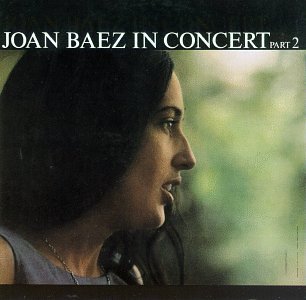
Joan Baez in Concert, Part 2 was a second installment of live material, recorded during Joan Baez' concert tours of early 1963. It peaked at number 7 on the Billboard Pop Albums chart.

Hits: Greatest and Others was a 1973 compilation Vanguard put together at the end of Joan Baez' association with their label. In addition to her hit cover of The Band's "The Night They Drove Old Dixie Down", songs by the Beatles and Kris Kristofferson were also included. Unlike previous compilations, this one skipped over most of Baez' earlier traditional material almost entirely, in favor of her more recent singer-songwriter material and covers.

Rare, Live & Classic is a 1993 box set compilation by Joan Baez. Released on Vanguard, where Baez had recorded her most influential work during the first twelve years of her career, the set also included material from her subsequent record labels, A&M, Columbia and Gold Castle Records, as well as a number of previously unreleased studio and live recordings. Bob Dylan, Bob Gibson, Mimi Fariña, Judy Collins, Odetta and Kris Kristofferson are among those who make guest appearances on the various tracks; also included were two tracks from a never-released album recorded in 1981 with the Grateful Dead.

The First Ten Years is the second compilation album by Joan Baez, released in October 1970. It rounds up highlights of her first decade with the Vanguard label.

"Positively 4th Street" is a song written and performed by Bob Dylan, first recorded in New York City on July 29, 1965. It was released as a single by Columbia Records on September 7, 1965, reaching No. 1 on Canada's RPM chart, No. 7 on the U.S. Billboard Hot 100, and No. 8 on the UK Singles Chart. Rolling Stone magazine ranked the song as No. 203 in their 500 Greatest Songs of All Time list.

"Love is Just a Four-Letter Word" is a song written by Bob Dylan, first recorded by Joan Baez, who has recorded and performed the song numerous times throughout her career.
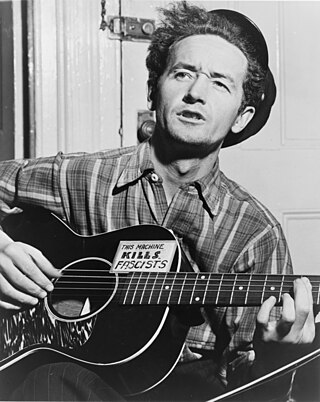
The American folk music revival began during the 1940s and peaked in popularity in the mid-1960s. Its roots went earlier, and performers like Josh White, Burl Ives, Woody Guthrie, Lead Belly, Big Bill Broonzy, Richard Dyer-Bennet, Oscar Brand, Jean Ritchie, John Jacob Niles, Susan Reed, Paul Robeson, Bessie Smith, Ma Rainey and Cisco Houston had enjoyed a limited general popularity in the 1930s and 1940s. The revival brought forward styles of American folk music that had in earlier times contributed to the development of country and western, blues, jazz, and rock and roll music.

Jack Landrón is an Afro-Puerto Rican folksinger, songwriter, and actor.
"Farewell Angelina" is a song written by Bob Dylan in the mid-1960s, and most famously recorded by Joan Baez.
"There but for Fortune" is a song by American folk musician Phil Ochs. Ochs wrote the song in 1963 and recorded it twice, for New Folks Volume 2 and Phil Ochs in Concert. Joan Baez also recorded "There but for Fortune" in 1964, and her version of the song became a chart hit.
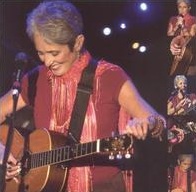
Bowery Songs is a live album by American singer and musician Joan Baez, released in 2005. It was recorded during Baez' set at Manhattan's Bowery Ballroom.

Phil Ochs: There but for Fortune is a documentary film on the life and times of folk singer-songwriter Phil Ochs. The film, released theatrically in January 2011, was written and directed by Kenneth Bowser. Its title is taken from one of Ochs' best known songs, "There but for Fortune" (1963).


















